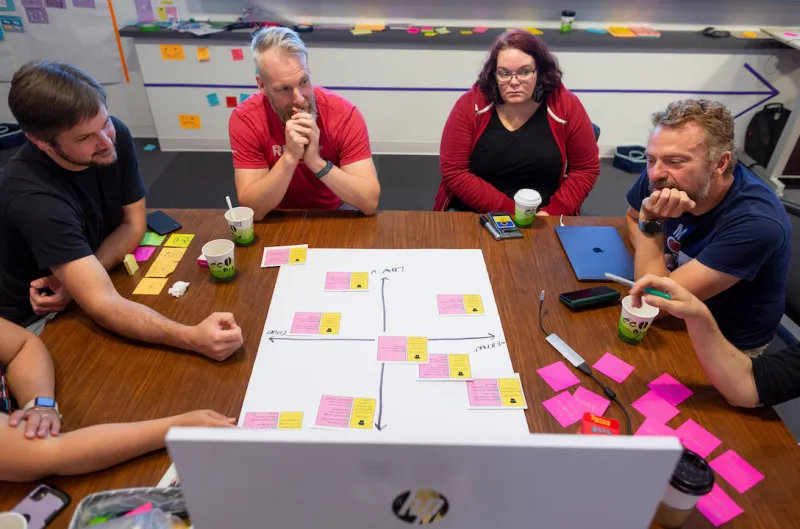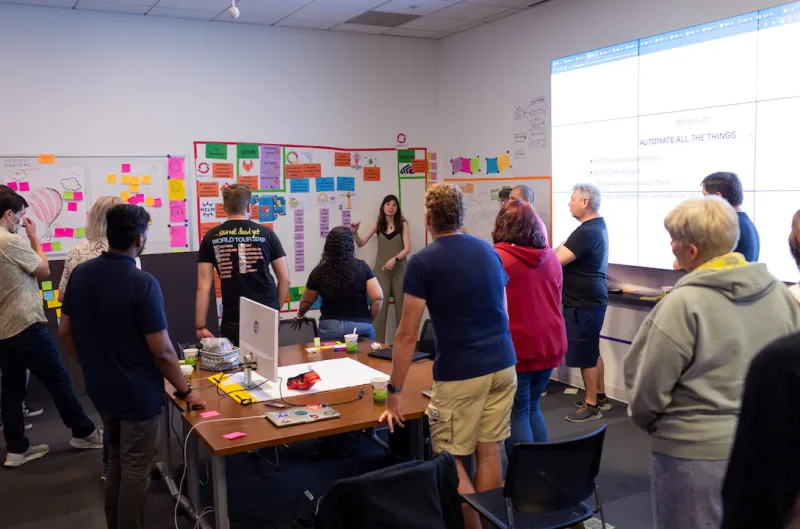The Boston Children’s Hospital FNNDSC team is using DevOps to improve its delivery on ChRIS, a solution helping to democratize healthcare platforms
As a leader in open source technology, Red Hat believes in using an open development model and DevOps best practices to create more stable and innovative technologies built with IT security needs in mind. We have spent decades collaborating with customers to develop software solutions that drive our customers—and the world—forward.
Red Hat and Boston Children’s Hospital (BCH) have a history of working together to do just that. In 2018, we shared the story of Creating ChRIS, demonstrating what happens when passionate visionaries and open technologies come together. Born out of a tight partnership between Boston Children’s Hospital, the Massachusetts Open Cloud (MOC) and Red Hat, the series follows a group of talented researchers as they develop the ChRIS Research Integration System, an open source, web-based medical imaging platform that greatly increases the speed and scale at which medical researchers can analyze images such as MRIs through the use of a distributed cloud-native platform.

At the height of the pandemic in 2020, DarwinAI and Red Hat announced that they were tapping into the expertise of a BCH computation research group, the Fetal Neonatal Neuroimaging and Developmental Science Center (FNNDSC), and the ChRIS platform to accelerate and deploy a COVID-19 detection and risk stratification software for real-world clinical and research use.
This innovative collaboration lives on. Through the Red Hat Social Innovation program, staff from Boston Children’s Hospital participated in Red Hat Training: DevOps Culture and Practice Enablement (TL500). TL500 is a five-day, immersive class offering students an opportunity to experience and implement cultural shifts that are utilized in many successful DevOps adoption journeys. BCH staff were excited to take the next step in adopting cloud-native best practices to leverage the technology that has already been developed.

ChRIS started from the ground up as a forward-looking project to improve the computation and analysis of data for medical researchers, including those at Boston Children's Hospital. Since then, the service has experienced an increasing amount of use. More users, more data and more workloads mean that the team needed to shift their focus from project building to a more DevOps and service-delivery mindset to better serve their growing user base.

Throughout the TL500 training, Red Hat experts worked side-by-side with BCH staff in an immersive experience that teaches the DevOps best practices and methods needed to shift their approach to delivering ChRIS. The experience promotes a systems-thinking approach to delivery, with a focus on how current technology can integrate and enable the delivery of new features and bug fixes. Staff were mentored on merging technical and leadership skills to solve problems efficiently and effectively. The five-day course fostered an infectious enthusiasm about new ways of working and embracing DevOps culture and looking forward to where these practices might fit into their day-to-day operations and long-term plans. Many exercises are repeatable and available to any team through Red Hat’s Open Practice Library.
Sandip, a back-end developer with BCH, shared his experience of learning to approach IT through the lens of DevOps culture: “One of my fears was that at the end of this week, I might not be able to connect everything to my day-to-day work. But I realized that this course is not just about the technology, it's about enabling you with the right ways to think about a project. That was an eye-opener for me. I immediately got to implement some of these processes to help me prioritize my projects and determine where my focus should be.”
“To get medical research software to the appropriate level of reliability and usability, you need these kinds of tools. Everything we’ve learned is going to be fundamental to getting these tools out of the lab and into the real world…I've got two of my great team members here with me, so we've all been exposed to it. We're going to take this knowledge back to our team and figure out which mix of these practices makes sense for us. We will definitely adapt our current practices based upon what we've learned this week.” - Rudolph Pienaar, PhD - Staff Scientist, Boston Children’s Hospital

Learn more
About the author
Alexandra Machado leads the Social Innovation Program at Red Hat. She is a thought leader in the open source and cross sector collaboration space. Machado is passionate about defining new and better technological and corporate culture strategies to help the world be better equipped to overcome global problems. She holds an MBA and MSc in Information and Communications Technologies. She currently lives in New York City.
More like this
KServe joins CNCF as an incubating project
Bringing intelligent, efficient routing to open source AI with vLLM Semantic Router
Open Curiosity | Command Line Heroes
Cloud native sustainability with Kepler | Technically Speaking
Browse by channel
Automation
The latest on IT automation for tech, teams, and environments
Artificial intelligence
Updates on the platforms that free customers to run AI workloads anywhere
Open hybrid cloud
Explore how we build a more flexible future with hybrid cloud
Security
The latest on how we reduce risks across environments and technologies
Edge computing
Updates on the platforms that simplify operations at the edge
Infrastructure
The latest on the world’s leading enterprise Linux platform
Applications
Inside our solutions to the toughest application challenges
Virtualization
The future of enterprise virtualization for your workloads on-premise or across clouds
